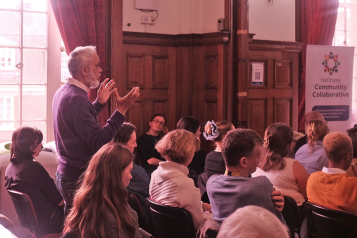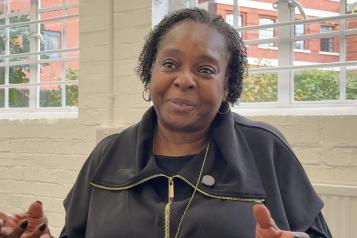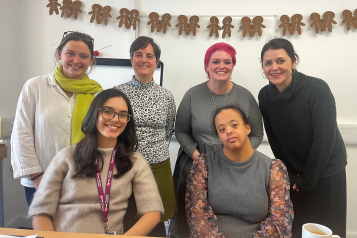Health and care services accessible to all
Challenging Inequality Partnership
Healthwatch Islington is a member of the Challenging Inequality Partnership. As a member of the partnership, we commit to making the borough a place where all residents can thrive. We commit to being a fair, open and inclusive organisation and will not tolerate discrimination of any kind. We celebrate the diversity of our staff and community and will treat them with respect and dignity. We will challenge inequality, discrimination and injustice.
One of the key motivations for Healthwatch Islington is to work towards improved health and care access for everyone, but particularly for those who experience worse health outcomes. Over the last decade, the gulf between rich and poor widened, and health inequalities grew and a programme of austerity has meant that public services were denied vital investment, and benefits were dramatically reduced having a particular impact on those with long-term conditions and/or disabilities.
Professor Sir Michael Marmot makes it clear in his review of health inequality that “most of the drivers of ill health relate to social, economic, environmental, cultural and political factors that lie outside the immediate remit of the healthcare system”.
The Institute for Health Equity acknowledges the importance of a population health approach to equity, supporting people to live well, not just supporting us well when we are ill. As a member of Islington’s Borough Partnership, which brings together leaders in health, social care, education, emergency services and housing, Healthwatch Islington can see that the borough is doing a great deal to reduce social inequality. However, we know there is more to do.
Often when services are designed they may be designed in a way that doesn’t work for sections of our population and as a result, these inequalities widen. Black residents have poorer mental health outcomes and are more likely to die in childbirth than their white counterparts because of the ways in which services are designed and delivered. Residents from a range of ethnic backgrounds were more adversely impacted by Coronavirus, with Bangladeshi residents 4 times more likely to die.
By not making our services inclusive we deny access to people who are entitled to it, and we unintentionally discriminate. Fundamental to supporting is considering service design from a broader range of perspectives, with experts who have lived experience, and to include people who have not been able to access services within these conversations.
We are pleased to see the borough acknowledging the importance of engaging residents in service design and will work with partners to ensure this is increasingly diverse and inclusive. We believe that residents and community organisations should be consulted when services are carrying out their Equality Impact Assessments and that this should happen in the early stages of any service design or re-design. Then services can be designed to be as inclusive as possible to a wide range of audiences, not just those who already have access. We believe that by bringing those who are most excluded into the design of services, we will ultimately reduce some of the health inequalities arising from inequitable access.


